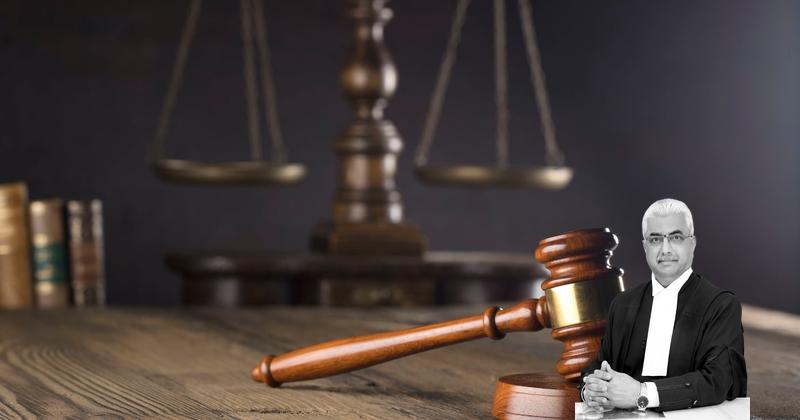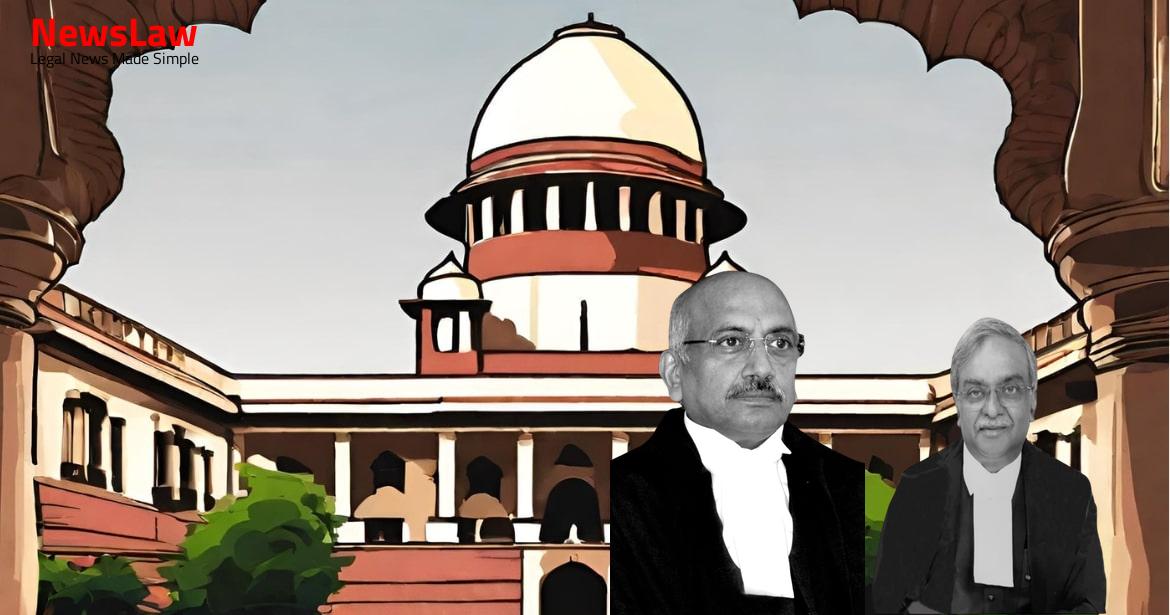Explore the fascinating legal complexities surrounding jurisdiction and investigation in a significant unnatural death case. The court’s meticulous legal analysis of the jurisdictional issues and investigative procedures sheds light on the nuances of criminal proceedings in such cases. Follow along to understand the crucial role of the judiciary in ensuring a fair and impartial investigation process.
Facts
- The petitioner is a friend of the deceased and is also in the acting field.
- The deceased resided within Bandra Police Station jurisdiction where the unnatural death was reported.
- The matter pertains to the unnatural death of actor Sushant Singh Rajput on 14.6.2020.
- The petitioner claims to have been falsely implicated in the Patna FIR filed by the father of the deceased.
- The petitioner and the deceased were in a live-in relationship, but she had shifted to her own residence a few days before the actor’s death.
Also Read: Insurance Claim Repudiation due to Fire Incident: Court’s Legal Analysis
Issue
- Core issues for consideration in this case: (a) Whether the Court has power to transfer investigation under Section 406 of the CrPC, (b) Whether the proceeding under Section 174 CrPC by Mumbai Police can be termed as an investigation, (c) Jurisdiction of Patna Police to register FIR and investigate incidents in Mumbai, (d) Status of CBI investigation on consent of Bihar government.
- Scope of power of a single judge under Section 406 of the CrPC and whether the Court can issue directions for complete justice.
Arguments
- The petitioner argues that the Mumbai Police did not properly investigate the allegations in the complaint filed by the deceased’s father.
- There were concerns raised about the non-cooperation and obstruction by the Maharashtra authorities towards the Bihar Police’s investigation.
- The petitioner believes that the Bihar Police registering the complaint and transferring the case to the CBI was legally justified.
- The petitioner supports the transfer of investigation to the CBI and states that they have cooperated with the Mumbai Police in the inquiry process.
- The petitioner’s counsel suggests invoking Article 142 of the Constitution for ensuring justice in the case.
- Present matter does not relate to two cases pending in two different states.
- Contradictory stand and parallel allegations of state Police being influenced by external factors in both states.
- Maharashtra Police conducting limited inquiry under section 174 of the CrPC, not yet registered any FIR.
- Bihar police’s FIR at the instance of deceased’s father is the only pending one. Maharashtra Police claims Bihar police has no jurisdiction.
- Entrustment of investigation to CBI should be in exceptional circumstances.
- Investigation of a crime should normally be undertaken by the concerned state’s police where the case is registered.
- Situations where crimes can be legally capable of being investigated by police from different states or other agencies.
- CBI registered FIR and commenced investigation at the request of the State of Bihar.
- Petitioner reposes confidence in Mumbai Police but is skeptical about the bonafide of steps taken by Bihar government and Patna police.
- Allegations of Mumbai Police attempting to shield real culprits under political pressure during limited inquiry under Section 174 CrPC.
- State of Maharashtra refutes allegations of shielding real culprits.
- Fair and impartial inquiry ensured if police of either state are kept away from investigating the alleged crime.
- Mumbai Police recorded statements of 56 persons in Section 174 proceedings, awaiting registration of FIR to legally commence investigation.
- Allegations of political interference against both states potentially discrediting the investigation.
- Directorate of Enforcement, a central agency, acting under the Prevention of Money Laundering Act, 2002.
Analysis
- The investigation under Section 174 CrPC is limited to inquire into the apparent cause of unnatural death and is not equivalent to a full investigation after the filing of an FIR under Section 154 CrPC.
- Transfer pleas under Section 406 CrPC have historically been granted in cases where a fair trial may be compromised, but only cases and appeals can be transferred, not investigations.
- The jurisdiction of the investigating authority like the Bihar Police appears to be valid given the nature of the allegations, despite the acrimonious allegations of political interference between states.
- It is crucial to determine who should conduct the investigation into all circumstances surrounding the death of the actor Sushant Singh Rajput to uphold justice and legitimacy of the inquiry.
- The Mumbai Police’s inquiry under Section 174 CrPC is limited to a specific purpose and not a full investigation of a crime under Section 157 of the CrPC.
- The ongoing CBI investigation, initiated with the consent of the Bihar government, is held to be lawful and legitimate.
- Any potential future parallel investigations by the Mumbai Police should be carefully managed to avoid confusion and ensure the credibility of the overall investigative process.
- The establishment of the cause of action for criminal proceedings against the accused individual is crucial, and justice must be secured while adhering to legal procedures.
- Sections 177 and 178 of the CrPC are relevant for determining jurisdiction in cases involving a part of the cause of action
- Various judgments have reiterated the importance of proper investigation and jurisdiction in criminal cases
- Section 181 of the CrPC deals with the place of trial for certain offences, including criminal misappropriation and breach of trust
- The court within whose jurisdiction the offence was committed or part of the property was received retains jurisdiction
- The power of the courts to ensure complete justice includes directing investigations within their jurisdiction
- Registration of FIR is mandatory if a cognizable offence is disclosed, without any preliminary inquiry
- Transfer of investigation can be considered in rare and exceptional cases to ensure justice and public confidence
- The objective of investigating agencies is to ascertain facts for redressal in court proceedings
- The petitioner has requested a CBI investigation.
- Family, friends, and supporters are eagerly awaiting the investigation results to dispel speculations.
- A fair, competent, and impartial investigation is crucial.
- Unbiased dissemination of real facts is necessary for justice and to counter vilification.
Case Title: RHEA CHAKRABORTY Vs. THE STATE OF BIHAR (2020 INSC 500)
Case Number: T.P.(Crl.) No.-000225 / 2020



